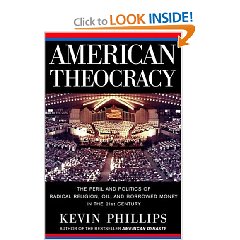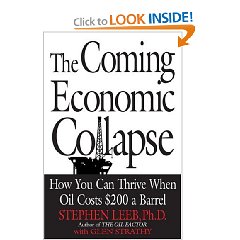I want to focus on its strengths. This is a five-star piece of work that is extremely well developed and well-presented. The ten covenants merit listing because all Americans need these covenants, and if the Latinos and the Americans of color can form their own parties and demand equality, then these ten covenants work for all of us:
I. Securing the right to healthcare and well-being. See my review of Paul Farmer's Pathologies of Power: Health, Human Rights, and the New War on the Poor (California Series in Public Anthropology, 4) and Andrew Price Smith's The Health of Nations: Infectious Disease, Environmental Change, and Their Effects on National Security and Development
II. Establishing a System of Public Education… See my varied reviews of the work of the university. Thomas Jefferson said “A Nation's best defense is an educated citizenry.” We've been blowing it since Viet-Nam.
III. Correcting the System of Unequal Justice. Not only do people of color get cheated, but so do white people that are not part of the corporate white collar crime world. See my reviews of both books by Kurt Eichenwald (The Informant: A True Story and also Conspiracy of Fools: A True Story)–U.S. law enforcement is joke in strategic terms, not just with illegal immigration.
IV. Fostering Accountable Community-Centered Policing. Makes sense, with an emphasis on community-building. More recently I have been promoting the need for a “bottom-up” community warning network with 119 and 114 numbers that help National Guard watchstanders “see” patterns that can be used for preventive policing.
V. Ensuring Broad Access to Affordable Neighborhood that Connect to Opportunity. This one really grabbed me, the author pointing out that the Department of Transportation spends 60% of its budget on roads for cars driven mostly by white people, and a fraction on mass transit of greater value to those who cannot afford a car.
VI. Claiming Our Democracy. This short section could have benefited from some mention of the reforms proposed by Ralph Nader (voting on week-ends, instant run-offs, end to gerrymandering), but it is right on target in pointing out that we have a corrupt democracy that does NOT deliver representative accountable representation. Since this is a Republic, we have the authority to dissolve the government and start over–now wouldn't that be something?
VII. Strengthening Our Rural Roots. There is a growing understanding that the centralized models of agriculture and energy are not only bad models from an oil-demand point of view, but they also destroy communities. “Localized” communities spread out and doing their own agriculture, energy production, and moral networking, are the way to go.
VIII. Accessing Good Jobs, Wealth, and Economic Prosperity. All well and good, but it starts with education. We have to give everyone a good education, and that is not happening in the inner cities or the rural areas, in part because we still have an education system built to train docile factory workers, not creative free spirits suited for the age of networked information.
IX. Assuring Environmental Justice for All. See my review of Max Manwaring (editor), “Environmental Security,” and Jeffrey Sachs The End of Poverty: Economic Possibilities for Our Time
X. Closing the Racial Digital Divide. Every church needs to become a Collective Intelligence Center where the members can come together to strategic on lowering their mortgage rates, sharing cars, increasing their income with online second jobs, etcetera.
Each section concludes with a Facts sheet, and then sections on what the community, the individual, and leaders can do, as well as short sections on what works.
Over-all this is an elegant collection of very educated views that should yield a very fine “summit” between John Edwards and Al Sharpton.
I completely agree with the reviewer that is disdainful of any attempt to shop this covenant to the Democratic or Republican parties. Both are completely corrupt and out of touch with America. A separate party is exactly the way to go, co-equal to the Greens, Libertarians, and others, but ideally, also helping to bring together the various minority parties, including a Latino party, under a federated American Independence Party. Peter Peterson in Running on Empty: How the Democratic and Republican Parties Are Bankrupting Our Future and What Americans Can Do About It has it right: BOTH the Democratic and Republican parties need to be closed down (conservative Democrats and moderate Republicans can form their own minority parties and come together with those listed above as well as the Deaniacs).
EDIT of 11 Dec 07: as I write this We the People appear to be stirring. There is now clear evidence that Dick Cheney is a proven liar and a nakely amoral person, and that Congress betrayed us all, the Republicans by being foot-solders for the White House, the Democrats for being their door-mats. 100 million “opt out” voters could come back into politics in November 2008, and help us take back our government. I for one am absolutely committed to reducing the size of the federal government while at the same time assuring free public health care just as we get “free” police and fire safety, and the same quality education for everyone through high school and thereafter as needed.









